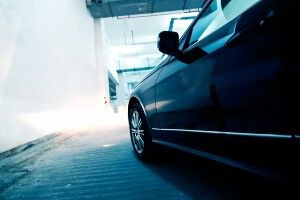 Car accidents can leave drivers unsure of how to pursue a claim related to their injuries or property damage. When a crash occurs on private property, establishing who may be liable for damages can be even more challenging. Certain rules that apply on public roadways may not apply for privately-owned property. Nonetheless, you may still be able to seek compensation for the losses you have sustained.
Car accidents can leave drivers unsure of how to pursue a claim related to their injuries or property damage. When a crash occurs on private property, establishing who may be liable for damages can be even more challenging. Certain rules that apply on public roadways may not apply for privately-owned property. Nonetheless, you may still be able to seek compensation for the losses you have sustained.
Greg Monforton & Partners explains how to best handle a crash on private property and some of the issues that may be involved in pursuing these types of claims. We offer a free initial consultation with no obligation to move forward with our firm. You pay nothing up front if we do represent you.
What to Do Immediately Afterward
Knowing what to do after a crash on private property is no different than for a car accident that occurs while driving on public street, road or highway. Ontario drivers are required to report the crash if there are injuries or damages that exceed $2,000. Even on private property, you will need to notify the police and your insurance company that you have been involved in a car accident.
Other best practices include:
- Obtain medical treatment – It is important to see a doctor to ensure the extent of your injuries are assessed properly and to follow any prescribed treatment plan to aid in your recovery.
- Exchange information – Gather personal and insurance information from the other driver and property owner as well as contact details from anyone who possibly witnessed the crash.
- Document accident scene – If you are physically able, take photos of the accident scene, including your visible injuries, damage to vehicles or property (i.e. broken signage, holes in wall, etc.).
- Refrain from agreeing to anything – The other party’s insurance company may ask to record your version of events or attempt to have you accept a quick settlement offer. It is in your best interest to not agree to do something until you have consulted with an experienced lawyer.
Liability for a Crash on Private Property
For the most part, a crash on private property is treated as a “no fault” crash by police. This means that every driver needs to make a claim under his or her own auto insurance policy to get compensated for medical bills and other losses.
Insurance companies use their own Fault Determination Rules to assess which driver is to blame for a car accident and his or her percentage of responsibility. For instance, if you are found 30 percent at fault, you may still be eligible to seek up to 70 percent of your losses from the insurance company.
However, if you sustained serious injuries, you may have the option to take legal action against the driver involved or the owner of the property. This will require proving negligence caused or contributed to the car accident, which is the same for incidents on public roadways.
The other party had to have owed you a duty of care to prevent harm and then breached that duty in some way that directly caused your injuries and damages.
Does the Highway Traffic Act Apply in These Cases?
Unlike crashes on public roadways, car accidents on private property, including parking lots, do not fall under the Ontario’s Highway Traffic Act (HTA). This means that the standard rules of the road cannot be enforced on privately-owned property. There are, however, general right-of-way rules that should be followed and traffic signs that must be obeyed while driving on private property.
We Fight for Just and Fair Compensation
If you have been involved in a crash on private property, we welcome the opportunity to review your situation during a free, no-obligation legal consultation. A Windsor-based car accident lawyer is ready to fight for your rights and seek the maximum compensation possible. Our firm has successfully obtained millions of dollars in compensation on behalf of our clients.
There are no fees to utilize our services. If we do not obtain a recovery for you, we do not get paid. We are available day or night to take your call or chat online.
Call (866) 320-4770 for a free case evaluation.